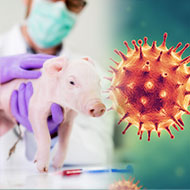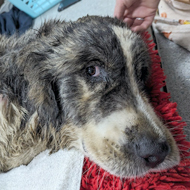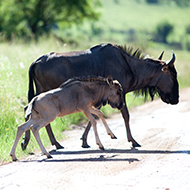The pig immune system is closely related to humans.
Scientists join global battle to help control the pandemic
Scientists at The Pirbright Institute have begun testing new coronavirus vaccines for their ability to protect against SARS-CoV-2, the strain responsible for the COVID-19 coronavirus pandemic.
The work, which is being carried out in collaboration with the University of Oxford and Public Health England (PHE), will test new vaccines for their ability to induce protective antibodies against SARS-C0V-2.
Among them includes a chimpanzee adenovirus vaccine vector (ChAdOx1), which is soon to enter human phase I clinical trials and has been used to create vaccines for diseases like Ebola and Middle Eastern respiratory syndrome (MERS).
Each vaccine candidate used in the trial will contain the spike protein from SARS-CoV-2, the protein against which protective antibodies are generated in infected patients. The vaccines will be administered to pigs, and the team will assess whether the antibodies can block SARS-CoV-2 from infecting cells.
The pig immune system is closely related to humans, so a good response to a vaccine in the pigs will help researchers predict the success of vaccines for use in humans. Scientists will also assess the safety of the new vaccines and monitor any adverse effects in the pigs.
Pirbright director, Professor Bryan Charleston, explained: “The ChAdOx1 vector vaccine developed by Oxford will be used in this SARS-CoV-2 vaccine research as it can generate a strong immune response with just a single dose.
"The vaccine vector is non-replicating which means it cannot cause ongoing infection in an individual, making it safer to use for those with underlying health conditions like diabetes. This approach has been used in other vaccines and we are hopeful that this research will enable this vaccine to move into the next stage of human testing."
Dr Toby Tuthill, head of the virus programme at Pirbright, added: “This work is a fantastic collaboration between world-leading medical and veterinary scientists in immunology, virology and molecular biology.
“It will provide an evaluation of new SARS-CoV-2 vaccines in a relevant model and will also generate a panel of antibody-based tools which will help us understand virus structure and how it stimulates the immune response. These antibodies could also be developed as additional novel therapeutics to treat COVID-19.”








